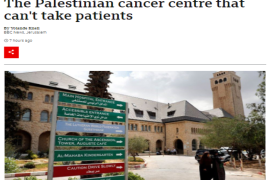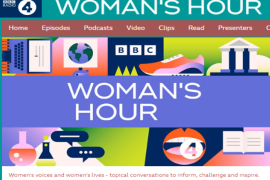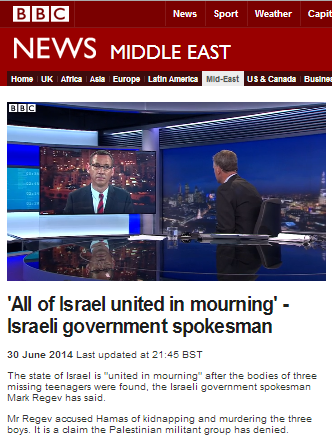If readers did not catch the BBC Radio 4 ‘Document’ programme by Mike Thomson on November 12th entitled “The BBC and the Hungarian Holocaust”, it is well worth listening to via this link. The programme is also summarised here.
The programme is interesting – and troubling – in that it discusses the role of Bush House in the “global propaganda battle” of World War II and the BBC’s willing collaboration with the exploitation of its reputation for “impartiality and honesty”.
“And so in a way you had the ethical, legitimate aspiration to impartiality, the values of Reithian BBC, generating the global world-wide following that you needed..”
“The hard-won credibility of the BBC was being used to help sell Britain’s propaganda effort”
At times, the programme seems to be trying a little too hard to suggest that the BBC was lead up the garden path by the man in charge of the BBC’s Hungarian broadcasts at the time – the Foreign Office’s Carlile Aylmer Macartney – and that ultimately the responsibility for the BBC’s having failed to inform Hungarians about the Holocaust, even whilst it was still being perpetrated, was that of the UK government.
The programme also does little to properly address the antisemitic attitudes laid bare in BBC memos and Foreign Office communiques of the time, preferring to categorise the attitudes displayed as
“Snobbery with a strong racial tinge to it as well”.
However, as the programme makes clear, BBC principles did not change even after Anthony Eden’s speech in the House of Commons on December 17th, 1942, in which he exposed the full extent of what he termed the “bestial policy” of the Nazi regime.
When confronted with the question why, the best the BBC’s official historian Jean Seaton can do is to suggest that BBC policy-makers were suffering from “fatigue” and agree with the presenter that they were perhaps “war-weary”. The moral aspects of the BBC’s decision not to expose to 800,000 Hungarian Jews the details of the Holocaust – which there are BBC memos to prove it knew about – are not addressed at all. The programme concentrates instead on the practical aspects of such potential advance knowledge. In fact, it is stated by one of the interviewees that:
“It wasn’t the job of the BBC to warn Jews.”
The programme also avoids discussing the proposal put forward by one of its interviewees, Professor Frank Chalk of Concordia University, in an academic paper from 2003, whereby “Allied broadcasts detailing the fate that awaited Jews sent to “labor in the East” might have contributed more to Allied victory and the survival of some of the Jews who were murdered in Auschwitz than broadcasts encouraging disaffection among Christian Hungarians.”
Disappointingly, the programme ends with the question:
“Can such a judgement ever be fairly made in times of peace, decades later?”
So, rather than coming to any real conclusions, the BBC’s attitude seems to be to file the whole episode away somewhere in between “not really our call” and “understanding the context”.
To those of us interested in the subject of the BBC’s attitude towards present-day Jews in Israel, some of the phrases used in the programme to describe BBC policies seventy years ago, may carry an uncomfortably familiar ring.
“Not inserting lies, but providing directives on what not to say”
“We shouldn’t mention the Jews at all”
Equally unnerving is the understanding that the supposedly ‘written in stone’ BBC values of “impartiality and honesty”, as well as the organisation’s independence, proved to be in fact negotiable – even when confronted with the knowledge of genocide.
Having avoided the follow-up question of what, if any, safeguards exist today to prevent moral and ethical considerations far broader than the BBC and its Charter being out-shadowed by the realpolitik of a funding, hands-on Foreign Office not immune to racism and particular political sympathies, the overall achievement of this programme is to provide a clue to lessons from history which go unheeded.




